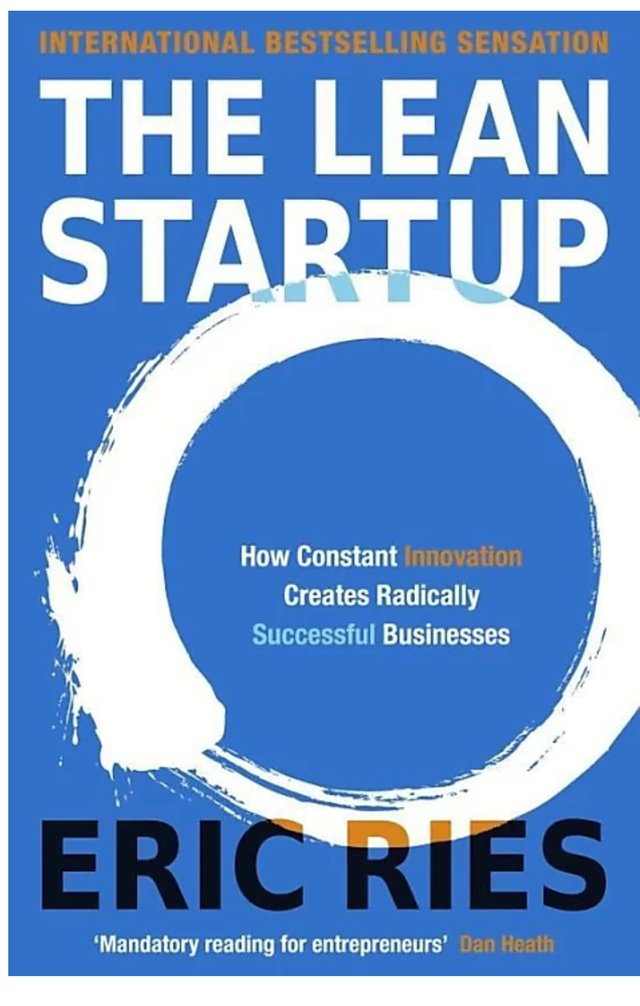Book review
 Our current economic environment is favorable for innovative startups, but there’s no consensus as to the best strategies these companies should use to find and maintain growth. Some managers randomly try out different solutions to see what will work, creating as many failures as successes. The chances of being successful can be significantly increased simply by taking a rational and systematic approach to finding the best strategy for running the business.The Lean Startup is a method to develop and manage startups. Standard business practices can be harmful to startups. These organizations necessitate special policies and procedures for managing innovative enterprises. These policies and procedures aren’t created randomly, of course — they’re the result of scientific techniques and research.The name The Lean Startup was inspired by the lean manufacturing revolution developed at Toyota. This system includes: attending to the ideas and knowledge of the workers; making smaller batch sizes; implementing just-in-time production; and accelerating cycle times. Long-range planning is a useful strategy in an environment where the future is predictable. In a constantly shifting world, however, the advantage goes to those who are light on their feet and can change direction quickly.There are many unknowns when it comes to launching a startup. The founder has a vision, but where that vision will lead is uncertain. In the beginning, even the product is unknown. Markets, partnerships, platforms — everything must be sorted out. Learning is essential to the company’s development. Validated learning is a system for demonstrating progress in a chaotic and changing environment. This method has the advantage of being quick and easy, and it’s backed by empirical data culled from real customers.Although the book’s title suggests it is geared toward startups, the principles and tools are just as useful for larger companies. Established organizations can also unlock the growth potential of innovation, but to do so, they’ll have to make some conscious changes in company culture. Startups might benefit by having innovative qualities already built into their cultures, but older companies can catch up.Eric Ries uses real case studies from a wide array of different businesses to illustrate the principles he discusses. He draws most of his material, however, from his own background as an entrepreneur, extensively detailing his experience at IMVU, the social media game company. At times, all the examples dominate the discussion at the expense of the subject matter.The tenor of the book changes dramatically in the epilogue. Through most of the book, Reis assumes a tone that’s friendly yet professional. He displays enthusiasm for the subject, but the epilogue becomes a rousing call to action. It is there that The Lean Startup morphs from a method into a movement. The move from the rational, sensible tone used in the book to the urgent emotional appeal in the epilogue might induce dissonance in some.Like all proper movements, The Lean Startup has a website that includes bibliographies and other resources for those looking for additional information: theleanstartup.com
Our current economic environment is favorable for innovative startups, but there’s no consensus as to the best strategies these companies should use to find and maintain growth. Some managers randomly try out different solutions to see what will work, creating as many failures as successes. The chances of being successful can be significantly increased simply by taking a rational and systematic approach to finding the best strategy for running the business.The Lean Startup is a method to develop and manage startups. Standard business practices can be harmful to startups. These organizations necessitate special policies and procedures for managing innovative enterprises. These policies and procedures aren’t created randomly, of course — they’re the result of scientific techniques and research.The name The Lean Startup was inspired by the lean manufacturing revolution developed at Toyota. This system includes: attending to the ideas and knowledge of the workers; making smaller batch sizes; implementing just-in-time production; and accelerating cycle times. Long-range planning is a useful strategy in an environment where the future is predictable. In a constantly shifting world, however, the advantage goes to those who are light on their feet and can change direction quickly.There are many unknowns when it comes to launching a startup. The founder has a vision, but where that vision will lead is uncertain. In the beginning, even the product is unknown. Markets, partnerships, platforms — everything must be sorted out. Learning is essential to the company’s development. Validated learning is a system for demonstrating progress in a chaotic and changing environment. This method has the advantage of being quick and easy, and it’s backed by empirical data culled from real customers.Although the book’s title suggests it is geared toward startups, the principles and tools are just as useful for larger companies. Established organizations can also unlock the growth potential of innovation, but to do so, they’ll have to make some conscious changes in company culture. Startups might benefit by having innovative qualities already built into their cultures, but older companies can catch up.Eric Ries uses real case studies from a wide array of different businesses to illustrate the principles he discusses. He draws most of his material, however, from his own background as an entrepreneur, extensively detailing his experience at IMVU, the social media game company. At times, all the examples dominate the discussion at the expense of the subject matter.The tenor of the book changes dramatically in the epilogue. Through most of the book, Reis assumes a tone that’s friendly yet professional. He displays enthusiasm for the subject, but the epilogue becomes a rousing call to action. It is there that The Lean Startup morphs from a method into a movement. The move from the rational, sensible tone used in the book to the urgent emotional appeal in the epilogue might induce dissonance in some.Like all proper movements, The Lean Startup has a website that includes bibliographies and other resources for those looking for additional information: theleanstartup.com
Tell me did you find this review helpful in comment section and don't forget to upvote😊